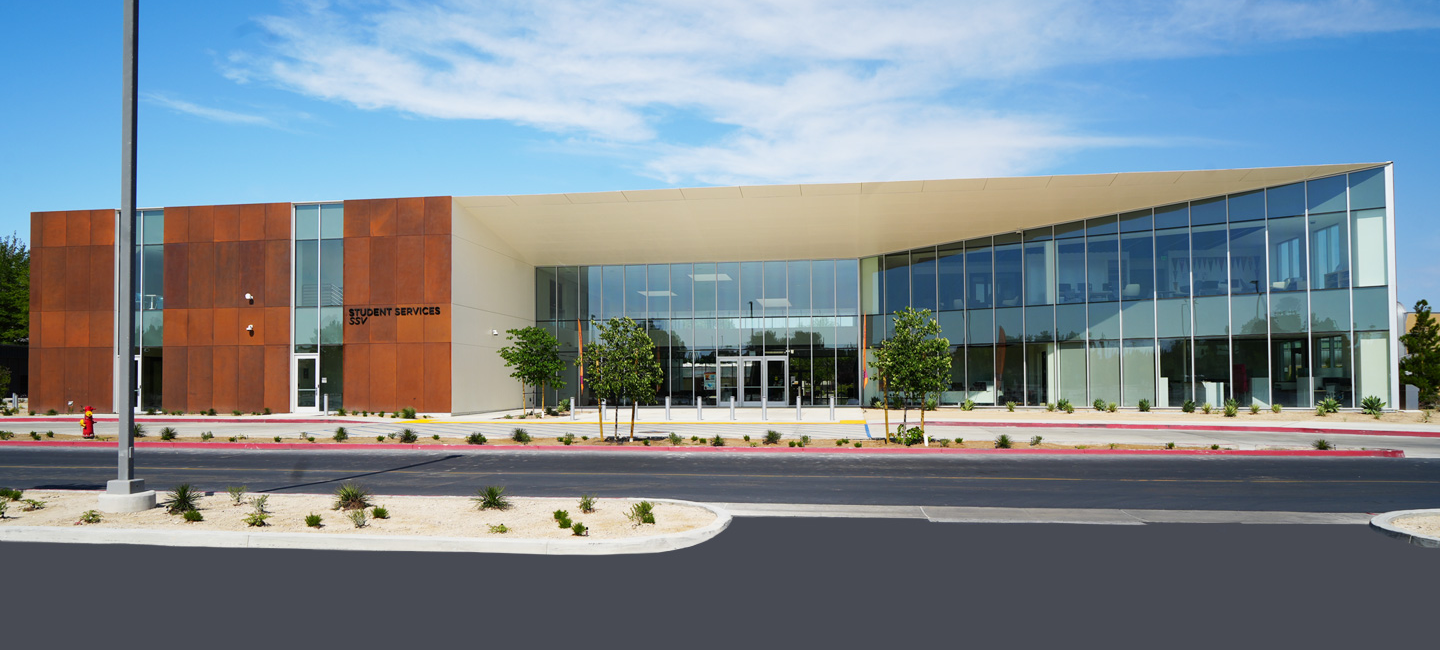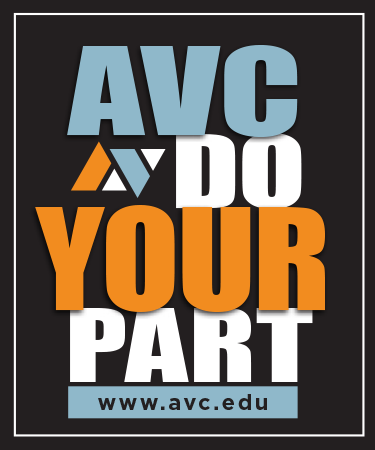
COVID-19 Campus Guide for Students
Students,
The health and safety of the entire AVC community is our top priority, guiding each decision we make about campus operations. The information in this COVID-19 Campus Guide will answer many questions about personal and shared responsibilities. We all need to DO OUR PART in keeping each other safe and healthy.
We expect any student who visits campus for any reason to follow the guidelines below. All student services can be accessed remotely (there is a link below to those contacts), by appointment or walk-in.
We will continue to make additions to the guide and urge all of you to review this Guide in its entirety, then return to it as needed.

 Students,
Students,